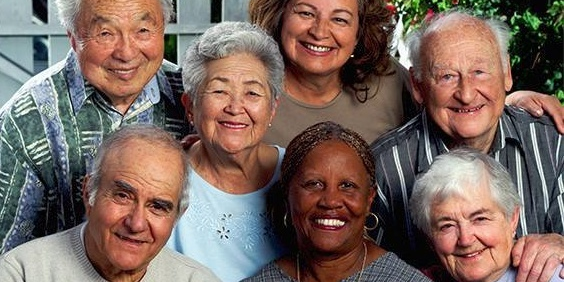
By Linda Bloom
March 10, 2020 | UM News
Church attendance and participation in Bible study and Sunday school classes “are by far the most common forms of social activity among older adults,” said the Rev. Richard H. Gentzler Jr., director of ENCORE Ministry for the United Methodist Tennessee Conference.
So offering direction and reassurance to older members, particularly those in their 80s and 90s, can help dispel feelings of fear and alarm during a crisis like the coronavirus outbreak.
That doesn’t mean they shouldn’t be made aware of the risk factors, added Gentzler, who retired as director of the Center on Aging and Older Adult Ministries for Discipleship Ministries.
“Informed older adults can make healthy lifestyle choices that decrease their risk of developing the coronavirus disease,” he said. He added that older adults who are socially active in the church and with church activities may not take seriously the need to refrain from shaking hands, hugging, otherwise displaying affection.
“Likewise, persons caring for the needs of older adults or visiting in the homes of older adults may bring with them, knowingly or unknowingly, the disease germ exposing vulnerable older adults,” he said.
Providing permission and even encouragement for older adults to engage in private worship, devotional reading and prayer in their own homes, supplemented by visits from pastors and congregational care teams, may be extremely helpful, he said.
Because of the disproportionately large representation of women who are members of a faith community, clergy also must better understand the needs and issues of aging women.
“While women are not a homogeneous population, there is an undeniably obvious higher degree of vulnerability for older women because of their greater life expectancy and because they may experience widowhood, reduced income, increased poverty and greater risks of ill health,” he said.
But effective ministry with older adult members is not just for crisis situations. “Engaging, equipping and empowering older adults for ministry should be an ongoing emphasis of the church,” Gentzler said. “By reframing aging, church leaders recognize that aging is not a problem for our churches to solve, but a gift to embrace.”
To start developing intentional older adult ministry, church leaders can:
- Establish a team of older adults, reflective of their diverse categories within the congregation, to begin identifying the needs, interests and capabilities of older adult members.
- Have the team conduct a survey of the specific members to determine their needs, interests and capabilities.
- Do a survey of the demographic and social service agencies and other churches in the community to find out what is taking place on behalf of older adults outside of congregation.
- Process the data received from the various surveys and plan a high-visibility event targeted at older adults (both members and nonmembers of the church).
- Survey the people who attended the event and then begin planning for future ministry opportunities.
Bloom is the assistant news editor for United Methodist News Service and is based in New York.
Follow her at https://twitter.com/umcscribe or contact her at 615-742-5470 or newsdesk@umcom.org. To read more United Methodist news, subscribe to the free daily or weekly digests.
